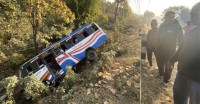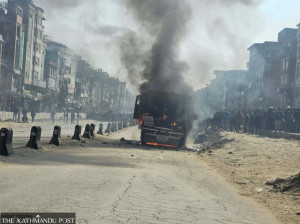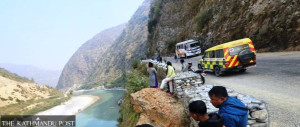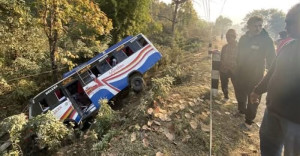Bagmati Province
Bagmati Province hikes taxi fare effective from Jan 15
Flag-drop charge increased to Rs60 from existing Rs14 and fare fixed at Rs9.80 per 200 metres from Rs7.80.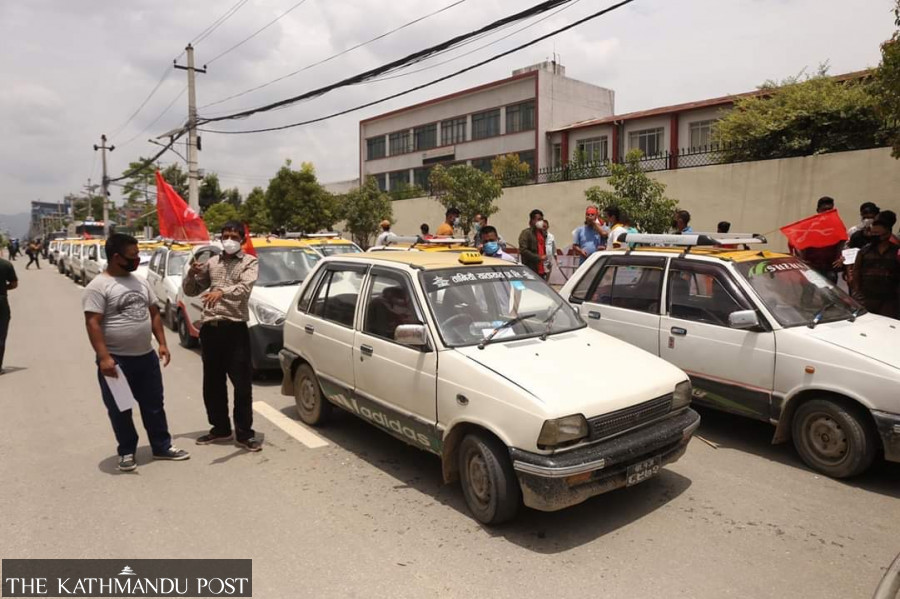
Anup Ojha
Three months after raising the bus fare in Kathmandu Valley, the Bagmati Province’s Ministry of Labour, Employment, and Transport has revised the taxi fare starting mid-January, but taxi drivers and entrepreneurs are not happy with the revised fares.
After numerous protests by taxi operators in Kathmandu, the ministry has hiked the flag-drop charge to Rs60 from the existing Rs 14 and the fare to Rs9.80 per 200 metres after the first 1 kilometer from the existing Rs7.80 per 200 meters. The fare will come into effect from January 15.
The government has revised the cab fare after a gap of 10 years.
The last time the taxi fare was revised was in 2012. But taxi drivers and operators say they are not happy as the hike is in name only and does not give them any relief from the losses they suffered due to the pandemic and the lockdowns.
Last year in July, the Department of Transport Management had allowed transport operators to jack up bus fare on inter-provincial routes by a sharp 28 percent.
“Earlier the government increased bus fare by 28 percent, but with taxis the hike is just 20 percent. This nominal increase does not provide us any relief,” complained Arjun Prasad Gautam, chairman of Nepal Metre Taxi Association.
“Market prices including the price of fuel have skyrocketed. The new revision is unjust because taxi operators have bank loans to service and they were among the hardest hit by the Covid lockdowns,” said Gautam.
Along with the revision, the provincial ministry has said cabbies will need to mandatorily give their business cards to their passengers and such cards should have their contact number and license plate number.
Prakash Adhikari, section officer at the ministry claimed the newly fixed fare is scientific and the ministry will deploy staff to see if the cabbies are charging passengers more than the metered fare and whether they issue receipts. “Since the flag-drop charge has been hiked to Rs 60, taxi drivers will not be refusing short-distance passengers anymore,” said Adhikari.
“I am not surprised they are still complaining because they always want more,” he added
The most common complaint among taxi passengers in Kathmandu is taxis refuse to take short-distance passengers and demand more than metered fare.
“This revision of price will motivate people to use cabs only for long distances, so that they don’t have to pay much. Meanwhile we will keep monitoring to ensure no passenger is cheated,” added Adhikari. He further said the ministry has already coordinated with the traffic police to closely monitor taxis.
Gautam, chairman of Nepal Metre Taxi Association, however, says the provincial ministry’s decision was unilateral and they were not consulted. He even claimed that the Nepal Standards and Metrology Department, the body responsible for enforcing measurement standards including the taxi meters, will not be able to keep track of over 12,500 taxis operating in the Bagmati Province. “They can only check around 30-50 taxis a day, so their claim of monitoring taxis is just a gimmick,” said Gautam.
Traffic police reports of several years suggest taxi meter tampering is rampant in Kathmandu Valley.
When asked about the taxi fare revision, spokesperson at the Department of Transport Loknath Bhusal said the issue does not fall under his department’s jurisdiction after Nepal became a federal state. “But we would have provided suggestions had the provincial ministry consulted us,” said Bhusal.




 12.62°C Kathmandu
12.62°C Kathmandu.jpg)
